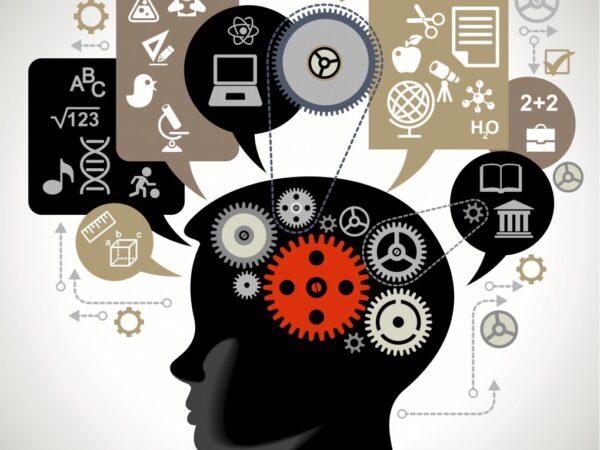Striving to enhance your relationship and to become a better human and companion is a great way to express to your companion how much you feel about them but that you’re interested in working on your conduct. Perhaps you’ve had trouble controlling your feelings or, on the other hand, you’ve gotten emotionally detached from your companion. Probably you have been unfaithful in the relationship, causing your companion to become much more secretive in his or her interactions with you. There are numerous motives for wanting to improve as a spouse, and it’s excellent that you’re attempting to do so.
Romantic relationships are constantly changing. They evolve with time, representing changing circumstances, stressors, and the highs and lows that both partners face on a daily basis. What transpires to “me” and “you” has an impact on “us.” The happiest relationships have individuals that check in with themselves, their spouse, and their connection on a regular basis (even if subconsciously) to see just how things have been going and make adjustments as needed.
What do we mean by becoming a better version of ourselves
To become a better person is a peculiar process that implies you were horrible to begin with as well as that you must endure significant personality adjustments to progress.
To begin and become a “better” person, though, you must first be rid of this misconception. A stronger version of oneself may be the most appropriate expression. To begin, keep in mind the following:
You aren’t aiming for perfection since perfection does not really exist.
It isn’t about you becoming terrible or incorrect, and you aren’t an issue that must be resolved.
Taking the first steps towards becoming better
Being a better version of oneself entails getting aware of certain of your traits that you may be inadvertently displaying improperly, which has a negative impact on both your dear ones and yourself. As a result, if you want to discover what it takes to become a better person, consider the following:
- Being truthful with yourself and enabling yourself to recognise areas in which you could use some assistance.
- Getting rid of any negative thoughts that are preventing you from becoming the best version of yourself.
- Enabling yourself to become much more receptive to new ideas and life experiences.
Therefore it ‘s neither about altering the “bad” elements of your attitude, life, or way of thinking, but instead about being a more accessible person who makes room for individual growth.
Can a person really change in a relationship?
It’s common to hear that no one ever transforms and that people preserve their notable personality traits regardless of their circumstances. However, it is also the environment’s perception of just that individual, not the person, that has been unable to transform. People’s efforts to change their behaviour are sometimes dismissed by people around them, regardless of how hard they try. So that is the one most serious flaw in the age-old debate over whether or not a person truly transforms.
The environment’s scrutiny and refusal to acknowledge a person who is working hard to be a better version of themselves is exactly what eventually leads to a situation in which people’s conduct does not change regardless of how much they try.
Individuals can, however, change their behaviours for the better and achieve the person they’ve always wanted to be. It is generally up with the rest of the individuals in their area to embrace the change and to provide the crucial support that will demonstrate their efforts are valued and appreciated.
What are some good qualities of a person in a relationship?
- Openness
An open partner is one who is willing to discuss their thoughts and emotions with their companions and is eager to be as transparent as possible.
- Honesty
Honesty is a crucial quality since it enables partners to develop trust in one another.
- Respect
Most people enjoy their partner’s admiration because it helps them feel like they’re on the same level in a relationship.
- Empathy
Empathy is valued because it helps individuals to be heard and understood by their partners.
- Affection
Both on an emotional and physical level, it is critical for both partners to be endearingly connected.
- Communication
In a relationship, it is critical for both sides to be capable of communicating well, as effective communication is essential for resolving any issues.
- Patience
Patience is also a valuable quality in a mate since it enables for a much more loving and supportive connection.
How to take the responsibility by oneself?
- Express gratitude- It’s one thing to be appreciative; it’s another to tell your partner. Do you thank others for their help? It seems that expressing thankfulness is associated with good partner impressions and an opportunity to talk about relationship issues, both of which are beneficial to the maintenance of successful relationships.
- Focus on humility- Keep your ego in control to help your connection. Not only are compassionate people viewed more favourably as prospective relationship partners, but modesty also appears to be a key component of successful relationships. Its link to forgiveness, a fundamental skill for healthy relationships, may help to strengthen relationships.
- Spend more quality time together- Many anecdotal information indicates that spending lots of time around each other improves relationship quality, but study into whether time enhances contentment or whether relationship satisfaction improves total time together has just lately been conducted. Long-distance relationships, despite popular opinion, have no distinct relationship quality than short-distance relationships, regardless of the fact that long-distance couples spend a little time together (by definition). The findings show that we should prioritise the value of our time being spent together with our partner over the quantity.
- Be kind to yourself- Start with being gentle to oneself to be the greatest partner you could be. Self-compassion is proving to be a great foundation for a good relationship, according to scientific data. Self-compassion is the practise of being kind with oneself when they experience failure, insufficiency, or imperfection. Evidence suggests that self-compassion promotes behaviours that lead to healthy relationships, such as showing concern and respect for a partner. It is beneficial to our relationships to focus on ourselves.
- Take action- Certain habits have an impact on the satisfaction of a partnership. These maintenance actions are frequently instinctive, but making conscious strategies to engage in them can be beneficial to relationships. According to research, these seven behaviours are particularly effective in determining relationship satisfaction, attraction, love, and dedication:
- Positivity. When spending quality time together, express joy and enthusiasm.
- Understanding. Listen, forgive, apologise, and avoid making snap decisions.
- Assuring others. Discuss the future and reassure your partner of how important he or she is to you.
- Self-disclosing. Communicate your emotions with your partner and inspire them to do the same. Task sharing is a good idea.
- Don’t be afraid of accepting the wrongdoing
Even when confronted with proof that they are completely wrong, we usually know folks who refuse to admit they are totally incorrect. The fact is that all of this outlook on life is seldom healthy, and it nearly always actually ended up proving toxic with even the most stable of relationships. Don’t be afraid of expressing regret. Admitting you’re apologetic isn’t a sign of inferiority or failure; nevertheless, refusing to acknowledge it is.
A few final thoughts
It’s fantastic that you desire to enhance your relationship by becoming a better human and a better companion for your important other. However, there may be moments when you are unsure about what to do or even how to adjust your conduct with your partner. A daily attempt by one partner might alter the relationship for another, potentially affecting the other’s ideas and behaviours. To put it another way, your activities do not happen in a vacuum; they have had an impact both for your partner and your collective connection.
You could make your companion feel gorgeous, be as chiselled as sin, as well as be an excellent listener—but none of this will matter if you refuse to develop and progress.
Even if not everybody evolves, it is necessary for everyone to evolve. Avoiding to deal with different situations will lead to you decaying away and suffocating oneself and everyone around you. This will cause a schism amongst you two.
Life is a journey, therefore you and your partner would both have to learn new things along the way. As a result, be flexible. Accept it! And you and your companion would be able to have limitless adventures on life’s unpredictable road together.







